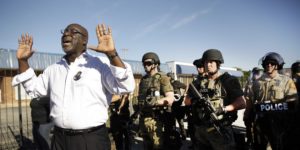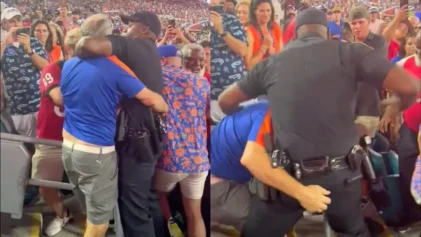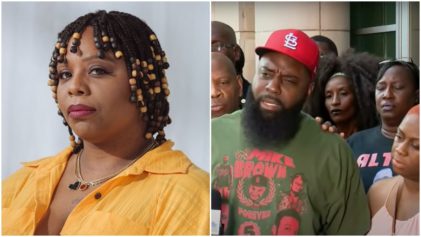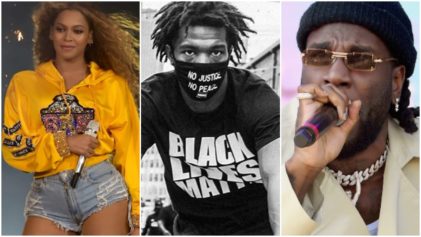
From New York City to San Diego, from Oakland to Chicago, cities across the nation have grown so accustomed to settling lawsuits filed over police misconduct that in many cases they don’t even bother investigating complaints. The likelihood that the money paid out in a lawsuit and the attention high-profile cases bring to a police department will result in a substantial change in any particular officer’s behavior is extremely tiny — never mind instigating any large-scale examination of a department’s training and procedures.
In a Huffington Post examination of the financial costs of police misconduct in New York City in the wake of Eric Garner’s July 17 chokehold death, prominent civil rights attorney Ron Kuby said, “The NYPD does not care how frequently a police officer is sued or how many civilian complaints have been lodged against a police officer, or how many of those complaints are justified or substantiated.”
In the case of New York, a city lawyer, Fay Leoussis, told the Bloomberg News in 2012 that the city saves money by just offering settlements when an officer is sued rather than investigating the complaints and taking action against the officer.
New York City paid out $185.6 million in claims against the NYPD in fiscal year 2011, according to a 2012 report by the NYC Comptroller’s office. That was a 35 percent increase over 2010, so clearly the payouts have no impact on police behavior. In fact, in fiscal year 2011 the 8,882 claims filed against the NYPD was an historic high — and a 55 percent rise in claims over the past five years.
In Ferguson, a 30-page lawsuit claims the police intentionally, negligently and/or recklessly caused the protesters to be subjected to unnecessary force, arrests not based on probable cause, and other violations of their constitutional rights. The plaintiffs seek compensatory and punitive damages totaling $40 million.
The 30-page suit includes anecdotes from the plaintiffs detailing how they were abused by the police department during the days of unrest that followed the Aug. 9 killing of the unarmed Brown by Ferguson police officer Darren Wilson. A grand jury is currently considering whether to file charges against Wilson, while the U.S. Justice Department is conducting its own investigation to determine whether Wilson violated Brown’s civil rights when he killed him because he was upset that the 18-year-old was walking in the street instead of the sidewalk.
The lawsuit, posted online by the Los Angeles Times, offers a detailed look into the behavior of police officers who appear to be undisciplined and may be exhibiting behavior far beyond the bounds of acceptable police conduct.
“A public outcry about the shooting death of Michael Brown by Officer Wilson turned into protests, which subsequently turned into civil unrest in the streets of Ferguson, Missouri, when defendants took up arms and, in militaristic displays of force and weaponry, engaged U.S. citizens as if they were war combatants,” the suit alleges.
In the suit, plaintiff Tracey White and her 13-year-old son allege that their rights were violated when, after attending a Peace and Love rally sponsored by their church, they were accosted and arrested at a McDonald’s where they were eating and peacefully talking to other people in the restaurant. White alleges that officers dressed in what looked like military gear stormed into the McDonald’s and ordered everyone to “get out.” But her son had just gone to the restroom, so she tried to explain that she wanted to wait for him to come out and that they were waiting for her husband to pick them up.
At that point, White says the officer threw her to the ground and handcuffed her because she would not “shut up.” As she was being arrested, her son came out of the bathroom. When she asked him to take the iPad out of her hands, an officer named Justin Cosma, named as a defendant, arrested her son as well. Because he’s a minor, he was not identified. The mother and son were fingerprinted at the police station and held for more than five hours on the unfounded charge of “failure to disperse.”
The suit includes the story of Dewayne Matthews Jr., who alleges that when he was standing with his hands in the air, in surrender mode, police in riot gear riddled him with rubber bullets, slammed him into the concrete, pushing his head underwater in a sewer, and sprayed him with some sort of chemical. Matthews says he wasn’t even participating in the protests — he was on the way to his mother’s house to make sure she was OK.
Plaintiffs Damon Coleman and Theophilus Green claim the police shouted racial slurs at them while punching and kicking them — this is after officers hit them with rubber bullets. They were arrested and held for more than 12 hours.
A piece last year on the site alternet.org detailed the multimillion dollars taxpayers are forced to pay out in seven different cities to settle claims against the police.
“The costs of these lawsuits and payouts add up, and bad police behavior takes a toll not only on our civil liberties, but also on a city’s budget,” said the story by John Knefel. “It’s worth mentioning that lawsuits against the police rarely result in million-dollar payouts for victims, are difficult to win and represent only a fairly small slice of total reports of police misconduct.”
In Chicago, the piece quotes a report by the University of Illinois concluding that police misconduct lawsuits against the city and out-of-court settlements “have cost taxpayers several hundreds of millions of dollars at a time when all levels of government have to cut services and raise taxes.” In addition, defending cops against litigation has cost Chicago more than $82.5 million since 2003.
The alternet story quotes the East Bay Express reporting that in Oakland, “the total legal costs of ongoing police officer misconduct totaled $13,149,000 in fiscal year 2010-11.” And in a perfect illustration of how lawsuits rarely make a difference, in Oakland an officer named Jonathan Bellusa, who was the partner of a cop involved in a controversial shooting, filed a claim against the district after “he had been placed on leave, stripped of his badge and gun, and subjected to psychological evaluations because he came forward with discrepancies involving the shooting.”
In Denver, according to the ACLU of Colorado, the city paid out more $10 million of taxpayer money between 2002 and 2010 in police misconduct settlements and judgments.
Even the U.S. Supreme Court has come down hard on the side of perpetuating police misconduct. In a decision issued in May in the case of Plumhoff v. Rickard, the court showed how far it thinks police can go and still not cross the line into misconduct. Officers in West Memphis, Arkansas, pulled over a white Honda Accord in 2004 that had only one working headlight. But instead of stepping out of the car, as the officer asked, the driver, a man named Donald Rickard, sped away and led police on a five-minute chase during which he reached speeds over 100 mph. The officers eventually fired 15 shots into the car, killing both Rickard and his girlfriend. The Supreme Court reversed a lower court and ruled unanimously in favor of the police, with Justice Samuel A. Alito Jr. writing that the driver’s conduct posed a “grave public safety risk” and that the police were justified in shooting at the car to stop it.
The court said it “stands to reason that, if police officers are justified in firing at a suspect in order to end a severe threat to public safety, the officers need not stop shooting until the threat has ended.”
“This is deeply disturbing,” the New York Times wrote in response to the May 2014 decision. “The Supreme Court now has said that whenever there is a high-speed chase that could injure others — and that would seem to be true of virtually all high-speed chases — the police can shoot at the vehicle and keep shooting until the chase ends. Obvious alternatives could include shooting out the car’s tires, or even taking the license plate number and tracking the driver down later.”
As these cases all show, police misconduct is a national problem that is rarely addressed by municipalities, which are content to keep shelling out cash every time one of their officers abuses his authority.
It is a system that ensures African-Americans will continue to suffer at the hands of police.


